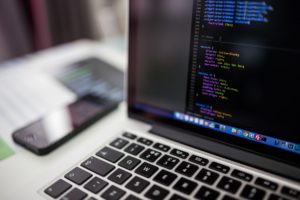
The Philippines’ plan to join the Association of Southeast Asian Nations (ASEAN) Single Window (ASW) has been moved by a month to December this year, according to an official of the Department of Finance (DOF).
“The Philippines will now go live with the ASEAN Single Window by December 2019,” according to DOF director and Central Information Management Office head Angelica Sarmiento in a panel discussion at the National Export Congress 2019 on December 6.
DOF had earlier announced that the Philippines would go live on the ASW in November, joining Indonesia, Malaysia, Singapore, Thailand, Vietnam, and Brunei, which have all done so earlier. The ASW is the regional initiative that aims to speed up cargo clearance and promote regional economic integration by enabling the electronic exchange of border documents among the ASEAN’s 10 member states.
Like the Philippines, Cambodia, Myanmar, and Laos are also expected to join the ASW by yearend.
Bureau of Customs (BOC) Management Information System and Technology Group deputy commissioner Allan Geronimo last September explained to PortCalls that testing between TradeNet—the Philippines’ National Single Window (NSW)—and the ASW was put on hold due to technical issues related to the API (application programming interface) between TradeNet’s and ASW’s gateways.
A prerequisite for the Philippines to link to the ASW is to execute its NSW called TradeNet, the government’s digital trading platform that aims to reduce the processing time and number of transactions for import and export clearances.
Geronimo noted that BOC and DOF were already at work on alternative solutions to meet the then November target for the live exchange.
Finance Undersecretary Gil Beltran in an earlier statement noted that Indonesia, Malaysia, Singapore, Thailand, Vietnam, and Brunei are already exchanging over 460,000 customs and other trade-related documents a year at only 10% of the usual cost to traders.
“Lower transaction costs will, in turn, enhance ASEAN’s trade competitiveness,” he added.
The Philippines aims to have all 76 trade regulatory government agencies across 18 government departments eventually become fully interconnected to TradeNet, a development expected to simplify import and export documentary processes covering an initial 7,400 regulated products.
Starting next year, additional documents expected to be exchanged through the ASW include sanitary and phytosanitary certificates, animal health certificates, self-certification of product origin, and shipping documents.
Beltran earlier said TradeNet is expected to streamline the application for electronic certificates of origin (e-COs) by businesses in the ASEAN after BOC released a customs memorandum order (CMO) that provides guidelines for the submission and processing of all e-COs through TradeNet.
CMO 15-2019 provides guidelines for operationalizing the issuance of e-COs; it was signed and issued by Customs Commissioner Rey Leonardo Guerrero last March 18.
Beltran said testing of the submission and processing of e-COs through TradeNet and ASW will continue in order to ensure connectivity and a streamlined process of exchange.
Beltran further said BOC personnel have started to go through training to familiarize themselves with TradeNet, while pilot exporters have begun to upload data to TradeNet.
He added that the first week of TradeNet’s live operations with the Philippine Drug Enforcement Agency (PDEA) was “successful, with no incident.”
PDEA’s online processing involves the approval and issuance of import and special export permits on dangerous drugs, controlled precursors and controlled chemicals. – Roumina Pablo
